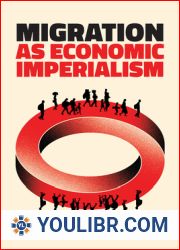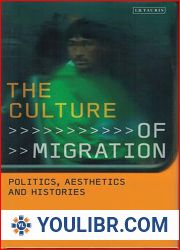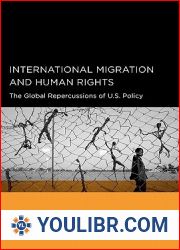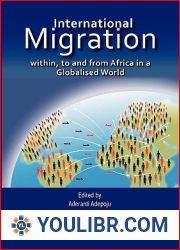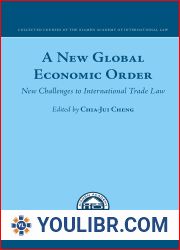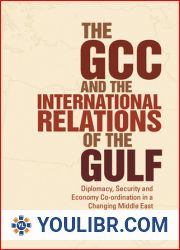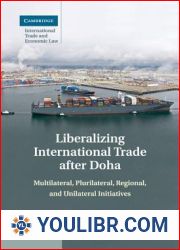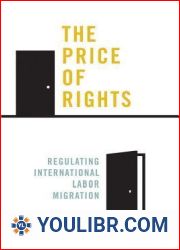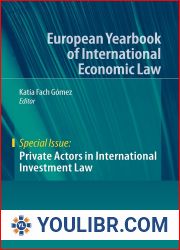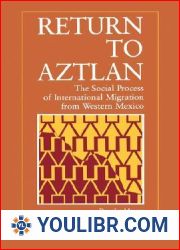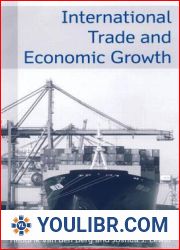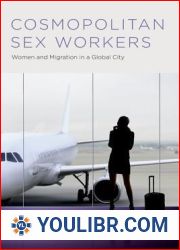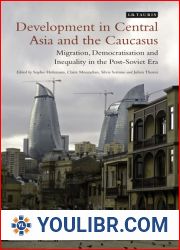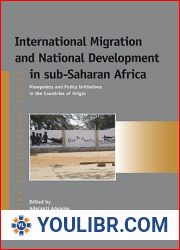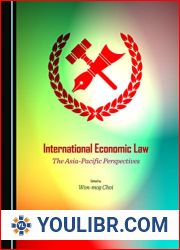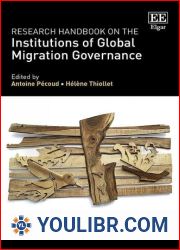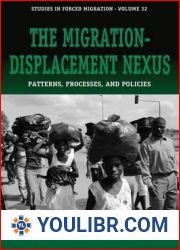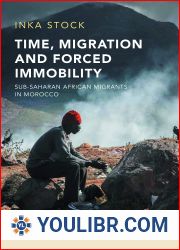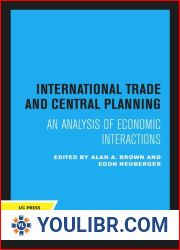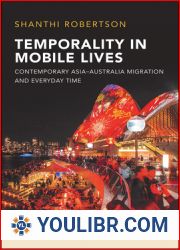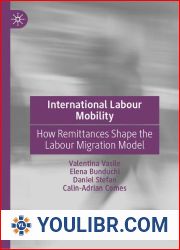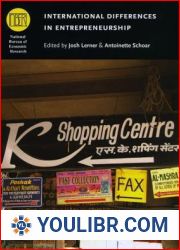
BOOKS - Migration as Economic Imperialism: How International Labour Mobility Undermin...

Migration as Economic Imperialism: How International Labour Mobility Undermines Economic Development in Poor Countries
Author: Immanuel Ness
Year: September 12, 2023
Format: PDF
File size: PDF 11 MB
Language: English
Year: September 12, 2023
Format: PDF
File size: PDF 11 MB
Language: English
Migration as Economic Imperialism: How International Labour Mobility Undermines Economic Development in Poor Countries The book "Migration as Economic Imperialism" by Immanuel Ness offers a scathing critique of the conventional wisdom surrounding international labor migration, challenging the notion that remittances from migrant workers are the key to development in poor and underdeveloped countries. Instead, Ness argues that temporary labor migration represents the latest form of economic imperialism and global domination, with far-reaching consequences for the economies and societies of origin countries in Africa, Asia, and Latin America. According to Ness, the process of technology evolution has created a vicious cycle of exploitation, where wealthy states and multinational corporations rely on cheap labor from the Global South to fuel their own economic growth, while leaving behind a trail of economic inequality, social instability, and border control mechanisms that marginalize low-wage migrant workers, particularly women and youth. The book exposes the harmful political, economic, and social effects of migration on origin countries, highlighting how remittances do not bring about growth but rather perpetuate national dependence on the export of migrant workers, leading to distorted and unequal development on the global periphery.
Миграция как экономический империализм: как международная мобильность рабочей силы подрывает экономическое развитие в бедных странах Книга «Миграция как экономический империализм» Иммануила Несса предлагает язвительную критику общепринятого мнения о международной трудовой миграции, бросая вызов представлению о том, что денежные переводы от трудящихся-мигрантов являются ключом к развитию в бедных и слаборазвитых странах. Вместо этого Несс утверждает, что временная трудовая миграция представляет собой последнюю форму экономического империализма и глобального господства с далеко идущими последствиями для экономики и общества стран происхождения в Африке, Азии и Латинской Америке. По словам Несса, процесс эволюции технологий создал порочный круг эксплуатации, когда богатые государства и транснациональные корпорации полагаются на дешевую рабочую силу с глобального Юга для подпитки собственного экономического роста, оставляя после себя след экономического неравенства, социальной нестабильности и механизмов пограничного контроля, которые маргинализируют низкооплачиваемых рабочих-мигрантов, особенно женщин и молодежь. Книга раскрывает пагубные политические, экономические и социальные последствия миграции для стран происхождения, подчеркивая, что денежные переводы не приводят к росту, а скорее увековечивают национальную зависимость от экспорта трудящихся-мигрантов, что приводит к искаженному и неравному развитию на глобальной периферии.
Migration als Wirtschaftsimperialismus: Wie die internationale Arbeitskräftemobilität die wirtschaftliche Entwicklung in armen Ländern untergräbt Immanuel Ness "Buch" Migration als Wirtschaftsimperialismus "liefert eine vernichtende Kritik an der gängigen Meinung zur internationalen Arbeitsmigration und stellt die Vorstellung in Frage, dass Überweisungen von Arbeitsmigranten der Schlüssel zur Entwicklung in armen und unterentwickelten Ländern sind. Stattdessen argumentiert Ness, dass temporäre Arbeitsmigration die letzte Form von Wirtschaftsimperialismus und globaler Herrschaft darstellt, mit weitreichenden Folgen für die Wirtschaft und Gesellschaft der Herkunftsländer in Afrika, Asien und Lateinamerika. Der Prozess der technologischen Evolution hat einen Teufelskreis der Ausbeutung geschaffen, in dem reiche Staaten und multinationale Konzerne auf billige Arbeitskräfte aus dem globalen Süden angewiesen sind, um ihr eigenes Wirtschaftswachstum anzukurbeln, und eine Spur wirtschaftlicher Ungleichheit, sozialer Instabilität und Grenzkontrollmechanismen hinterlassen, die schlecht bezahlte Wanderarbeiter marginalisieren, insbesondere Frauen und junge Menschen, sagte Ness. Das Buch zeigt die schädlichen politischen, wirtschaftlichen und sozialen Auswirkungen der Migration auf die Herkunftsländer auf und betont, dass Überweisungen nicht zu Wachstum führen, sondern die nationale Abhängigkeit von den Exporten von Wanderarbeitnehmern aufrechterhalten, was zu einer verzerrten und ungleichen Entwicklung an der globalen Peripherie führt.
''
Ekonomik Emperyalizm Olarak Göç: Uluslararası İşgücü Hareketliliği Yoksul Ülkelerde Ekonomik Kalkınmayı Nasıl Baltalıyor? Immanuel Ness'in "Ekonomik Emperyalizm Olarak Göç" kitabı, uluslararası işgücü göçü hakkındaki geleneksel bilgeliğin iğneleyici bir eleştirisini sunarak, göçmen işçilerden gelen işçi dövizlerinin yoksul ve az gelişmiş ülkelerde kalkınmanın anahtarı olduğu fikrine meydan okuyor. Bunun yerine Ness, geçici emek göçünün ekonomik emperyalizmin ve küresel tahakkümün son biçimini temsil ettiğini ve Afrika, Asya ve Latin Amerika'daki menşe ülkelerin ekonomileri ve toplumları için geniş kapsamlı sonuçlar doğurduğunu savunuyor. Ness, teknolojinin evriminin kısır bir sömürü döngüsü yarattığını, zengin devletlerin ve çokuluslu şirketlerin kendi ekonomik büyümelerini beslemek için küresel Güney'den ucuz emeğe güvenerek, ekonomik eşitsizliğin, sosyal istikrarsızlığın ve sınır kontrol mekanizmalarının izini bıraktığını söyledi. düşük ücretli göçmen işçileri, özellikle kadınları ve gençleri marjinalleştirir. Kitap, göçün menşe ülkeler üzerindeki zararlı politik, ekonomik ve sosyal etkilerini ortaya koyuyor, işçi dövizlerinin büyümeye yol açmadığını, aksine göçmen işçilerin ihracatına olan ulusal bağımlılığı sürdürdüğünü ve bunun da küresel çevre üzerinde çarpık ve eşitsiz bir gelişmeye yol açtığını vurguluyor.
الهجرة كإمبريالية اقتصادية: كيف يقوض تنقل العمالة الدولية التنمية الاقتصادية في البلدان الفقيرة يقدم كتاب إيمانويل نيس «الهجرة كإمبريالية اقتصادية» نقدًا لاذعًا للحكمة التقليدية حول هجرة العمالة الدولية، متحديًا الفكرة القائلة بأن التحويلات من العمال المهاجرين هي مفتاح التنمية في الفقراء والفقراء البلدان المتخلفة النمو. بدلاً من ذلك، يجادل نيس بأن هجرة العمالة المؤقتة تمثل الشكل الأخير للإمبريالية الاقتصادية والسيطرة العالمية، مع عواقب بعيدة المدى على اقتصادات ومجتمعات البلدان الأصلية في إفريقيا وآسيا وأمريكا اللاتينية. قال نيس إن تطور التكنولوجيا خلق حلقة مفرغة من الاستغلال، حيث تعتمد الدول الغنية والشركات متعددة الجنسيات على العمالة الرخيصة من الجنوب العالمي لتغذية نموها الاقتصادي، تاركة وراءها أثرًا من عدم المساواة الاقتصادية وعدم الاستقرار الاجتماعي وآليات مراقبة الحدود التي تهمش العمال المهاجرين ذوي الأجور المنخفضة، وخاصة النساء والشباب. ويعرض الكتاب الآثار السياسية والاقتصادية والاجتماعية الضارة للهجرة على بلدان المنشأ، ويؤكد أن التحويلات المالية لا تؤدي إلى النمو، بل تديم الاعتماد الوطني على صادرات العمال المهاجرين، مما يؤدي إلى تنمية مشوهة وغير متكافئة على هامش العالم.







